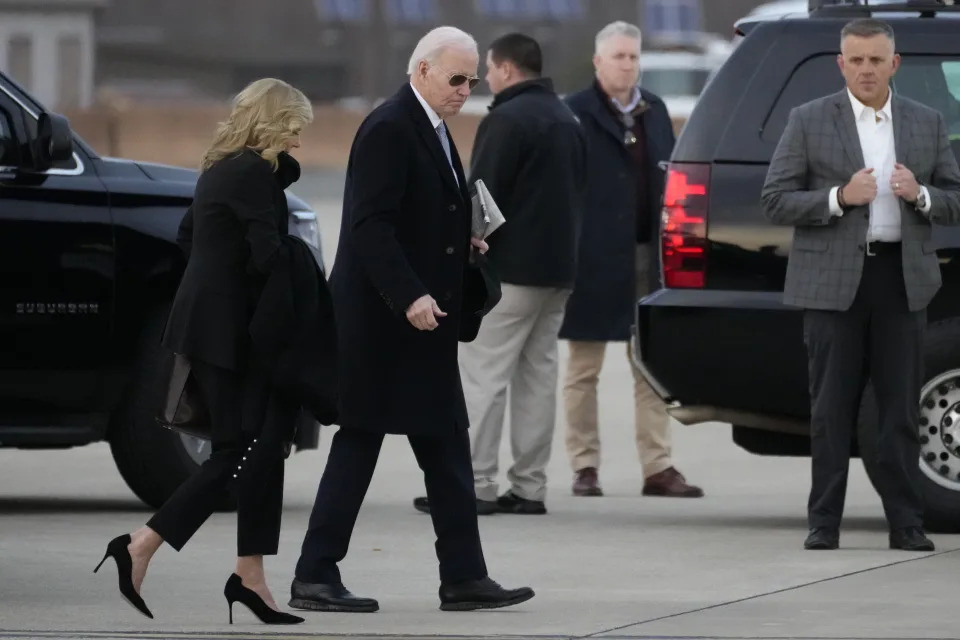This week in Bidenomics: Early exit
Is Donald Trump already president? Financial markets seem to think so.
At the Federal Reserve’s final interest rate-setting meeting of 2024, Chair Jerome Powell revealed that the central bank is starting to factor Trump policies into its monetary policy decisions. Powell didn’t mention Trump by name. But investors clearly understood this elliptical construct as a reference to the incoming president:
“Some people did take a very preliminary step and start to incorporate highly conditional estimates of economic effects of policies into their forecast at this meeting.”
Translation: Trump has promised tariffs, the deportation of migrant workers, and other policies that could generate inflationary pressures and distort the economy in other ways. Fed policymakers may have to change course as a result. If inflation picks up, for instance, the Fed might have to stop cutting interest rates and start hiking them.
The Fed did cut interest rates by a quarter point at the December meeting, but the central bank’s newly hawkish tone spooked financial markets. Stocks fell 3% on the day and a modest recovery still left stocks down for the week. Post-election euphoria in markets has evaporated as investors begin to grapple with the disruption Trump’s radical policies could cause.
"Markets will have to work through a period of policy uncertainty," Citi analysts wrote in a December 20 research note. "Investors should be prepared for lingering volatility into Q1."
As a timely illustration of the risks, Trump and his surrogate Elon Musk threw Congress into disarray by persuading House Republicans to kill a bipartisan spending bill that would have kept the government funded and operational into 2025. Musk actually took the lead on that, posting more than 100 screeds on his social media network X exhorting Congress to kill the bill. Trump weighed in later, seconding Musk. So Congress killed that bill and started working on others.
Congress finally passed a short-term spending bill after a week of chaos. But the fractiousness between Trump, Musk and Republicans in the closely split House suggests Trump will struggle with other legislative goals, even though his party will control Congress next year.
Worth noting: Joe Biden is still president. The current Congress is the one in which Democrats still control the Senate. The next Congress, with full Republican control, doesn’t convene until Jan. 3. Trump won’t succeed Biden until Jan. 20.

Drop Rick Newman a note , follow him on Twitter , or sign up for his newsletter .
Yet the final days of the Biden presidency are about as lame as a lame duck gets. Biden is virtually invisible and his frailty increasingly dominates the narrative of his presidency. The Wall Street Journal ran a year-end exposé asserting that Biden has been functioning with diminished capabilities for most of the last four years. Few Americans seem to doubt it, or even care, at this point.
Biden, nonetheless, is leaving Trump a healthy economy that any president would like to inherit. Retail sales are holding up, even though consumers have run out of the “excess savings” they banked during the COVID pandemic. Inflation has dropped sharply, from a peak of 9% in 2022 to just 2.7% now. At the December Fed meeting, Powell called the US economy “remarkable.”
If Democrat Kamala Harris had won the 2024 presidential election, investors would be anticipating more of the same and few surprises. That’s not how 2025 is likely to go, obviously. Businesses look forward to Trump’s deregulatory efforts. But tariffs and deportation are likely to raise business costs and push consumer prices higher. Trump's — and Musk’s — hostility to government is another wild card that could roil bond markets if it leads to another downgrade of US debt or sends volatility soaring.
“We expect the incoming administration’s policies to have a mildly stagflationary impact on the economy,” Capital Economics explained in a Dec. 20 analysis. “We would expect growth to run close to 1.5%, with inflation temporarily rebounding to 3%.” Both of those developments would represent a worsening of the economy’s current path.
It will still be the Biden economy for a few more weeks. But Trumponomics is barreling into town, and things are going to change. That’s what voters wanted, right?
Rick Newman is a senior columnist for Yahoo Finance . Follow him on X at @rickjnewman .
.




